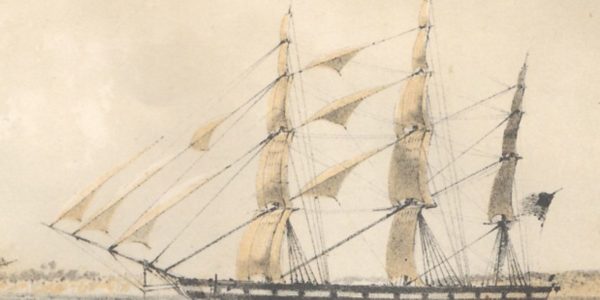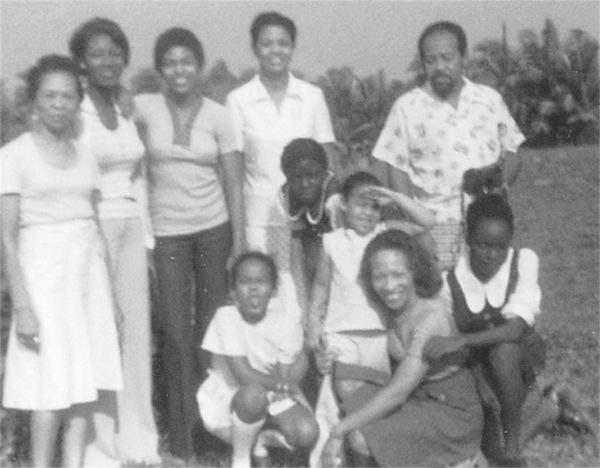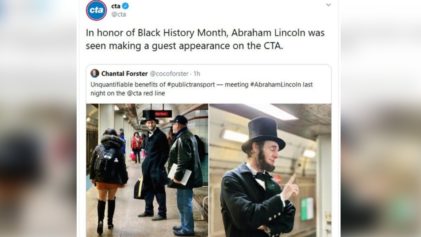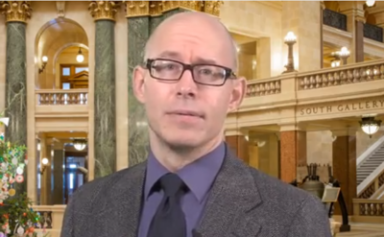
An old ship vessel
The Voyage Back Home
On this day, Feb. 6, 1820, the very first group of Black Americans returned to Africa.
A group of nearly 90 brave men and women voyaged across the Atlantic on the Mayflower of Liberia (also known as The Elizabeth), a vessel that would leave from New York City to arrive in Sierra Leone just over a month later on March 9.
Paul Cuffe’s Dreams of a United Black Race
Although the American Colonization Society headed this particular voyage, this “Back to Africa” movement had been initiated years prior by a Black man named Paul Cuffe.
Cuffe was born to an ambitious and self-taught father captured from Ghana’s Ashanti region. This gave him a direct connection to Africa, higher ideals of freedom and a rebellious streak that most African-Americans didn’t have at the time. He is on record at just 21 years old as refusing to pay taxes to the Council of Bristol County, Mass., because Blacks did not have the right to vote.
Cuffe remained highly ambitious and passionate about the upward mobility of African-Americans all throughout his life, so much so he took part in numerous social, political and entrepreneurial endeavors. He was an evangelist, abolitionist, sea captain and merchant. Because of this, he would go on to become the wealthiest African-American of his time.
Despite his financial success and his exposure to the world at large, Cuffe was still disheartened about the harsh suffering of most Black Americans. In 1811, he took his first voyage to Sierra Leone, where he established the Friendly Society of Sierra Leone, which initially was a trading organization between Blacks in Africa, America, and England.
Unfortunately, Cuffe did not see his dreams come to fruition because he died in 1817. The American Colonization Society picked up where he left off but with much less good intent, based upon the historical record of its founder.
The American Colonization Society and the Establishment of Liberia
The American Colonization Society, founded in 1816, just a year before Paul Cuffe died, was a movement initiated by Robert Finley, a white man who also was president of the University of Georgia at the time. Finley believed that it was very unlikely that Blacks would ever be fully integrated into American society. According to his words, Black people could only reach their highest potential in Africa.
Finley also felt that, at that time, Black people in America were a threat to national security and the well-being of white people and that them going back to Africa could lessen the increasing slave uprisings.
Between 1820 and the mid-1860s, over 13,000 African Americans had gone back to Africa. Shortly after these mass migrations, the colony of Liberia was officially established and the American Colonization Society published academic journals, similar to today’s magazines, that served to document the experience of the Black diaspora and what many of them would make of themselves after their return to Africa.
The Contemporary Lives of African Americans’ Descendents In Africa

Helene Cooper’s Americo-Liberian Family. Image Source: Amazon
Helene Cooper, a Pulitzer Prize winner for her book “The House at Sugar Beach: In Search of a Lost African Childhood,” is of Americo-Liberian descent. Her great-grandfather Elijah Johnson was one of the men aboard the Mayflower Liberia and she recalls his legacy in this New York Times essay. In the controversial piece, Cooper thanks Johnson for returning to Africa.
“Because of him, I would not grow up, 150 years later, as an American Black girl burdened by racial stereotypes about welfare queens. Nor would I have to deal with the weights of a sub-Saharan African girl, with a life expectancy of about 40 years, yanked out of school at 11 to fetch water and cook over a coal pot and rear children barely younger than herself.”
The story of Elijah Johnson and some of his descendants has been published in this journal by The American Colonization Society and several other books documenting Liberia.
Today’s relations between African-Americans settlers and their descendants with native Africans are ambiguous. Nevertheless, there are many like Helene Cooper who’ve benefited from African-Americans returning to the land of their fathers.


